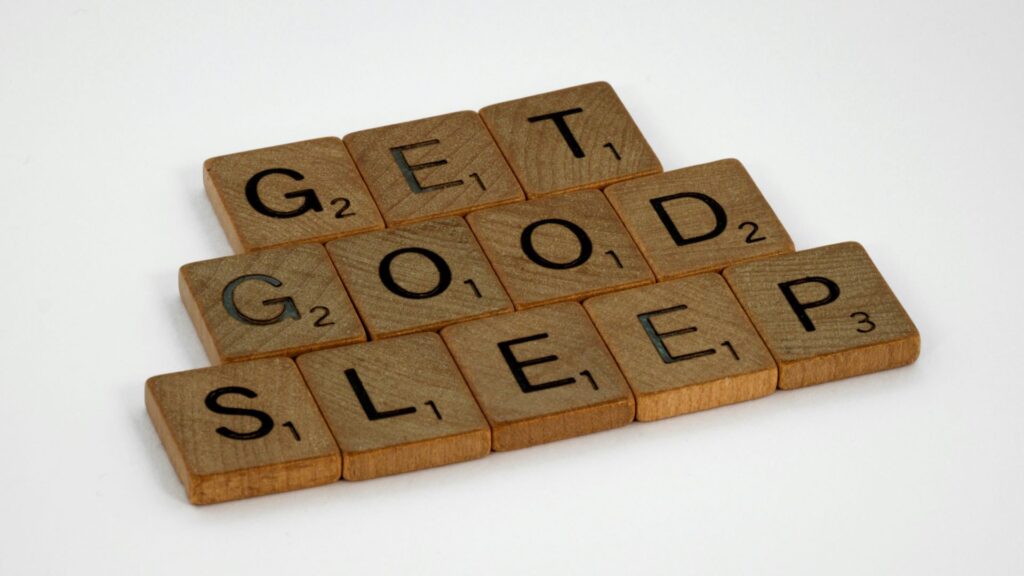It’s University Mental Health Day today – March 14 – and to mark the occasion we asked experts across our campus for their tips to improve your mental wellbeing.

1. Think about your social media use 😀
My expertise is in the exciting area of cyberpsychology which largely refers to the psychology of online behaviour.
When using social media, whether it is for work or leisure, try to prioritise connection over content.
Our research shows that more interactive use of social media promotes feelings of social belonging more than just observing content.
So, if you’re observing this tip via social media, use this as a reminder to send a message to someone special and let them know that you’re thinking of them.

2: Get to the art of the matter
Vicky Karkou, Professor of Arts & Wellbeing
The arts are increasingly being recognised as an important prevention, mental health promotion and treatment strategy.
Dancing, drama, music-making as well as drawing and painting can improve the quality of our lives, enabling us not only to alleviate distress but also to re-imagine new and better futures.
An Edge Hill University-led mental health project for children and young people, Arts4Us, utilising arts and arts therapies recently won £2.5million in funding - one of the largest research grants of its kind ever awarded nationally.
It will build on the success of arts-based group intervention project Arts for the Blues.

3: Go green and feel serene
Dr Sven Batke, Reader in Plant Sciences
Even the little pot plant on your desk may have a more potent effect on you than you might realise.
The houseplants you bought to brighten up your home or workplace may actually be helping you to think more clearly.
Studies have shown that surrounding yourself by plants could improve your concentration by up to 20 per cent and increase your ability to recall information by 15-20 per cent. Plants do this by reducing CO₂ concentration and improving air quality.
Read more: How plants can change your state of mind.

4: Think about your drink
Dr Jo-Anne Puddephatt, Lecturer in Psychology
Drinking alcohol regularly, and at heavy levels, can have an impact on your physical and mental health.
You may feel hungover or low on the days after a heavy drinking session. Some of the reasons for this is because of the impact alcohol can have on the chemicals in your brain, meaning that over time you may need to drink more to get the same effects.
This can lead to heavier drinking and poorer mental health.
Our research has shown that people with a mental-health problem are nearly twice as likely to drink alcohol at levels which are harmful to their health, particularly if they have a more severe mental-health problem.
We have also found that people with a mental-health problem drink to cope with symptoms (for example, low mood, anxiety, or hallucinations) but, over time, this led to poorer mental health and negative social outcomes.
The relationship between alcohol consumption and negative emotions has also been shown to be a complex one, impacted by factors such as whether you are drinking with others versus alone.

5: Get physical
David Haycock, Senior Lecturer in Sport, Physical Activity & Health
Activity can help reduce anxiety and stress and boost your mood and self-esteem. Even 10 minutes can make a difference.
There are lots of ways that we can be physically active, from daily activities, to play, exercise and sport, to help us look after our mental health.
If you have decided you would like to be more physically active, the key is to find something that is right for you.
You can start by asking yourself things like why you want to be more active, how active you’d like to be, how you can increase your activity and what you might find enjoyable.
Think, too, where you like being, how you can be more physically active there, whether you’d like to be more physically active alone or with others, and how it will fit it into your life.
To stay physically active, have a plan, but be willing to be adaptable. Being adaptable can be the difference between doing some physical activity over none. Consistency is the key, not perfection.
Edge Hill is renowned for using sport interventions to support positive mental health with its research programmes, including the award-winning Tackling the Blues.
The scheme, in partnership with Everton in the Community and Tate Liverpool, has been supporting children’s mental health through sports and the arts for more than 10 years.

6: Get outside, connect with nature, and breathe
Dr Michelle Howarth, Senior Engagement Fellow, Nursing & Midwifery
As well as University Mental Health Day, we are also celebrating National Social Prescribing Day on March 14, which highlights the positive impact individuals, organisations, and communities can have on our health and well-being.
Social prescribing is about finding personalised ways to support our mental health, considering what works best for each of us.
It’s like a prescription for activities and resources that can help improve our mental wellbeing, and one powerful aspect of this is connecting with nature, or “green social subscribing”.
Nature has a remarkable ability to improve our mental health, and green social prescribing encourages us to take advantage of this natural therapy.
Being surrounded by green spaces, like those at Edge Hill University, offers us a fantastic opportunity to benefit from nature’s calming and rejuvenating effects.
So, why not take a moment to step outside, breathe in the fresh air, take in the sights, sounds and smells, and make the most of nature?
It can be a simple yet effective step to nurture our mental health.

7: Give thought to food
Hazel Flight, Programme Lead – BSc (Hons) Nutrition & Health
What we eat plays a pivotal role in mental health and can have an influence on mood, cognition and overall wellbeing.
Poor nutrition can contribute to poor mental health and lead to depression, anxiety and cognitive decline.
A well-balanced diet containing key macronutrients (fat, protein and carbohydrate) and micronutrients (vitamins and minerals) supports brain function, which in turn helps stress management and resilience.
A lack of specific nutrients such as omega-3, niacin, folate, vitamin B6 and B12 can have an impact on mood regulation.
Low vitamin D levels are associated with increased symptoms of depression and anxiety. Therefore, recognising and understanding the link between nutrition and mental health is vital for holistic wellness.

8: Keep an eye on your sleep
Faye Walters, Head of Wellbeing & Counselling
Sleep is crucial for mental health as it allows the brain to rest, process emotions, and consolidate memories.
During sleep, the brain clears out toxins accumulated during waking hours, promoting cognitive function and emotional stability.
Adequate sleep enhances mood regulation, reduces stress, and supports overall mental wellbeing, contributing to better emotional resilience and clarity of thought.
Things to try for better sleep include cutting down on caffeine, nicotine and alcohol, exercise – but not immediately before bed – and try clearing your mind – imagine a black velvet theatre curtain coming down and blocking busy thoughts.
Need More Support?
Edge Hill has a Wellbeing Team available during office hours (08.45-17.00)
Phone number: 01695 650988
Email: [email protected]
Walk-in: Go to the helpdesk in the Catalyst Building
For more information on how the team can help, visit the Wellbeing webpages.
- Campus Support is available 24/7, 365 days a year. Call 01695 584227 or text 07785928911
- NHS 111: If you don’t feel you need to access A&E but you need immediate medical help you can call NHS 111 or ring your GP for an emergency appointment
- The Samaritans: The Samaritans can be contacted on 116 123 (free from any phone), via their online chat service or via email: [email protected]. They are available 24/7, 365 days a year. It may take several days to receive a reply by email.
- Liverpool Light Service: If you are near the Liverpool area, you can get in touch with the Liverpool Light Service. This is a preventative out-of-hours mental health crisis service, open from 6pm – 12am, 7 days a week. It has been set up to provide a safe place for people who are experiencing or at risk of a mental health crisis. Please note that this service is not in place of the 999 emergency service, if an ambulance is required you should call 999 immediately. For more information, visit the Liverpool Light Service website.
- Papyrus HOPELineUK: 24/7 Mental Health Crisis Response Line. Operated by trained mental health professionals who will offer help, advice, mental health assessments, referrals and access to the Trust’s wider mental health services, including home treatment.
- Lancashire – 0800 953 0110
- Greater Manchester – 0800 051 3253
- Merseycare – 0800 145 6570
- SHOUT Crisis Text Service: You can access 24/7 crisis support by texting SHOUT to 85258 for support.
- Campaign Against Living Miserably (CALM): You can call the CALM on 0800 58 58 58 (5pm–midnight every day) if you are struggling and need to talk. Or if you prefer not to speak on the phone, you could try the CALM webchat service.
- The Mix: If you’re under 25, you can call The Mix on 0808 808 4994 (3pm–midnight every day), request support by email on The Mix website or use their crisis text messenger service.
Find out more at: studentservices/wellbeing
March 14, 2024


